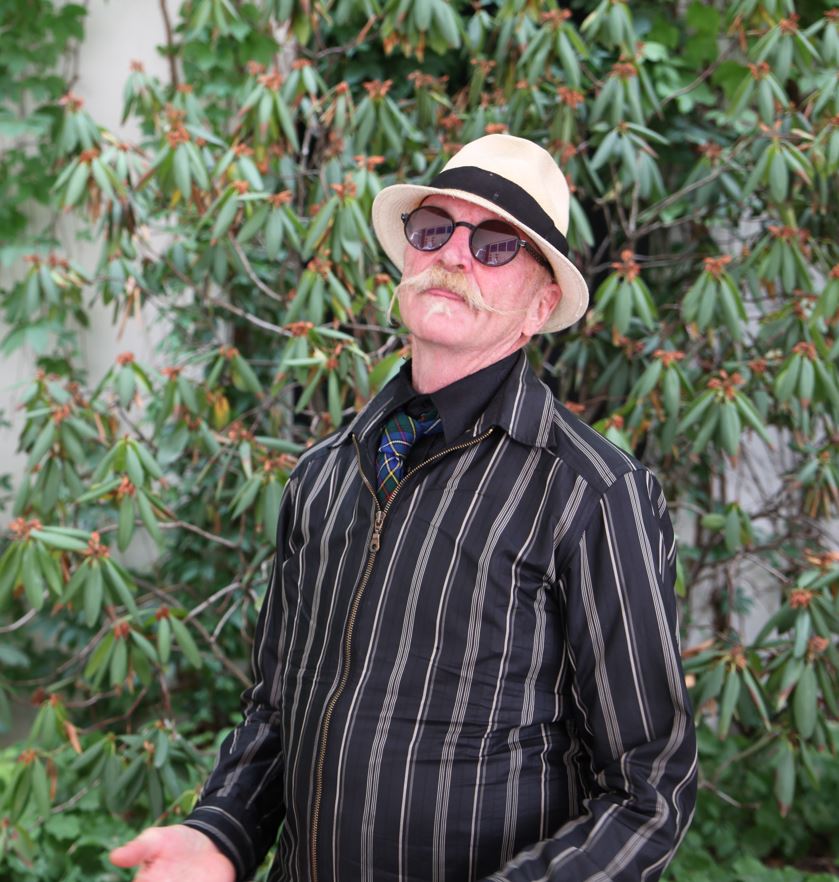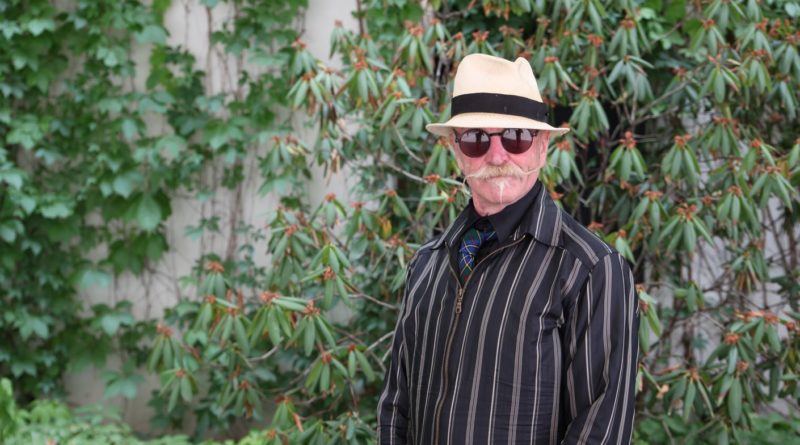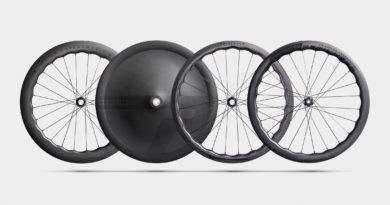Gary Fisher: “If you’re an amateur in this business now you’re out”
Now no longer directly part of the Trek business, Gary Fisher made a rare trip to Eurobike with a view to potentially opening a new chapter in the bike business… or maybe something else entirely. CI.N caught time with the industry legend, letting the conversation roll across all things bike, advocacy and future mobility…
It’s been a while since Gary Fisher made the journey to Eurobike, but after 29 years closely tied to the Trek business that relationship formally came to an end in the Spring of this year. How does he fell about it? In a few words: reenergised and free.
That is free to just see what’s out there. When we arranged to meet Gary in the halls at Messe Frankfurt he had no specific place to be, but lots to see. Posting to his social profiles, Gary wrote on Eurobike “The show has transcended from a purely commercial event to a powerful statement about the goodness of what we bring and our rightful place in society.”
In short, that was part of the reason he had attended; to view in full the direction that the cycling world is now headed. This year’s event was ultra-light on sports cycling, instead focusing largely on A to B cycling, often with goods carried. That was met with approval.
“I’ve always been disappointed that bikes have been sold as ornaments to sit on SUVs. That’s all changing now,” starts Gary in reference to the trend of bikes being used as tools for transport, rather than arguably being seen as shiny toys.
“The whole marketing message is changing. The bike is a top five icon of good life in Maddison Avenue now. We have taken some advantage of that, but we as an industry don’t control the message yet. When I was a kid they say that most money went on a house then a car. The car folk were smart with the messaging, they created a personality around ownership. A lot of Americans got off on it and still do, on having the power of driving around some sort of auxiliary kitchen, ‘my private defendable space’. They go through any neighbourhood in the trucks with a mindset that some bad guy isn’t going to get me in this. It has been sold as a lifestyle, but also by fear. Of course, it’s nothing like that in reality. I took some rich kids to a lower section of town on bikes and they still talk about it for six months afterwards. They need that different experience to know this world isn’t a bubble.”
Bikes are catching on with the youth for other reasons too, he says. Sometimes there’s simple economic reasons where the bike is seen as an affordable freedom against buying into expensive EV cars or fuel costs, but more than that Gary’s hopeful that the imagery changing around cycling is having a big impact on how ‘cool’ cycling is seen to be.
“Now I’m seeing seven to 14-year-olds on these eScooters. A kid that weighs 20- 30 kilos can go up hills all day on a charge. That means the mother doesn’t have to drive them all the time. I spoke to Chief of Police locally, he says ‘if I crack down on them then the mums will be angry at me!’ Then there’s these eBikes like the Super73; that style is so popular and kids go off riding all kinds of stuff on them. In doing so they are creating new desire lines for their peers. The bike racks are full again and it’s down to regular eBikes and scooters. We live on a peninsula that’s seriously jammed up. The bike paths go parallel, so bikes go right by the traffic. Added to that fact, in last 15 years people of wealth see it very fashionable to be fit. ‘There’s nothing better than being rich and thin’, they say.”

Imagery, influence and peer pressures are travelling further into harder to breach social circles, says Gary. As we look out upon the demo track at Eurobike, it’s the vehicles making up the lion’s share of tests that are starting to breach the notoriously difficult to crack demographic of mums on bikes.
“Women down at the playground near me are comparing cargo bikes now. I talk to a number of them and ask how it is and something’s different; they find the service of these bike companies to be fabulous.”
That’s not to say that the bike industry has been all bad in reaching the demographics that have looked at bike shops as intimidating places, but truth be told, it’s a historic viewpoint that is only now being addressed. What’s more, these start-ups entering the bike world to tap the transport movement are bringing in fresh blood and new ways of thinking, or reaching customers, with little to no preconception of how the bike world did it previously.
“The teams are well budgeted now and doing well by demographics that felt alienated before,” says Gary. “We’re becoming professionals now. I tell you this, if you’re an amateur in this business now, you’re out – that’s the handwriting on the wall. There’s a lot of very intelligent people coming into the bike world and I welcome them, I’d sooner have them with us than against. For the old school thinkers that’s going to mean putting up more to compete on marketing. Automobile companies have made marketing work, now is the time for the bike industry to do even better. Companies must put up real budgets; so far they are 5% of expenditure, that’s not enough, it’s 20-60% for software companies.”
In that nod to a creeping input from outside forces the subject shifts to the quickly changing corporate structure of the bike industry and why, all of a sudden, the bike world is attracting investors and fresh blood like never before. Why is much of coming from the automotive world lately, we ask?
“The handwriting is also on the wall space that urban areas won’t be forever given to cars now. It’s a realisation that they in that business have failed big on the promise of delivering useful transport to humans. Instead, the car has ultimately delivered death directly and via fine particulate matters, plus the ruination of peace and stifling of community.”
But what does Gary really think?
“The ‘we have been acquired and are enjoying the resource addition’ story is certainly a trending one. Let’s look at why our industry is interesting from outside from a resource perspective. There is no way to Net Zero without micromobility; one Tesla battery equals 200 eBike batteries. That’s the product side, but there are other cues that are driving city-based changes. Property developers are looking more at building close to transit routes, be it public transport or bike paths. Each building comes with less parking spaces put in as they’re no longer needed and you can lower the cost of the building without them. From an employer’s perspective, traffic does not make for a reliable or healthy workforce. Don’t you want your employees to show up on time consistently?”
It’s at this point our curiosity peaks, what’s Gary been up to since he parted ways with Trek and is the bicycle the answer to every transit problem?
“I’ve been getting into local politics. We have this whole thing about building more housing. Orange County had 200,000 people in 1970, today it’s 260,000. As the sprawl has grown people who work for you now have a 90-minute commute. They can easily pay two million dollars for houses close to workplaces and have a nanny costing $30 an hour. So, I’ve been pushing to expand local transit with ferries; they’ll hold 760 people. I’ve been pushing for extra docks to be put in where working people come from. It all helps.”
As for the reasons Gary is walking the halls of Eurobike, posting selfies with brands and making connections – is there anything to be read into this? Not yet, he says, but there could be.
“Truth is, I want to get back into creative, I have new ideas. I am finding a lot of friends and I’m having a great time here. I really love all the connectivity in bikes now. Marcus Storck’s bike with Porsche with the cameras on it, just wow. I told Garmin years ago I wanted accessories like these built into the bike, but we never did it. Integrating this stuff intelligently is key. The functions that solve problems for riders can really up the game.”
There will be mechanics out there reading with a degree of scepticism, of course. With integration of tech and internal routing comes potentially longer hours in the workshop. That’s a good thing, says Gary and a chance for the industry to finally start charging for its skillset.
“Mechanics have magic hands, don’t they? The average person can’t take a tyre on and off. People value that service, so don’t let yourself be devalued. Only 30% or fewer human beings should be allowed to have a wrench in their hands. I’ve been saying for an age that the automobile guys are serious when they start these technical schools. Some bike people are doing it now, thankfully. When a customer goes to a modern bike shop it should be more like entering a showroom and the maintenance programs should be perfectly aligned and professionally laid out. People do buy into it as they’re conditioned in this way by automobile industry.”
The workshop is of course becoming critically important to the bicycle retail model. Here in the UK, just shy of a third of independent bike retail respondents to CI.N’s annual market research said that the workshop was either the majority or the entirety of their trade. While the bike boom temporarily swelled numbers, the long-term trend of consolidation appears to be resuming. With the market seemingly offering up ample opportunity to tap an evolving customer base, what’s hurting the bike shop?
“We have a massive bike shop consolidation in the USA too. Five years ago a great dealer of Trek’s hit retirement age. His kids didn’t want the shop and nobody would buy it for a fair price. So, Trek said ‘we will take care of you’. That’s obviously happening more now and with many labels. Some dealers say this may all fail, but then they tend to ignore the extra 28 points on a bike sale. That extra cash ultimately means service can be upped with savings made, so they can listen to people and solve their problems better.”
Fewer, but higher quality bike shops, greater levels of service and new ways to access bicycles; it’s not all bad, one might argue. Change is one of life’s inevitabilities and so having been part of the pioneering movement of mountain bike riding, we have to know, what does Gary make of the evolution of modern bike design?
“Things change all the time, the way steel is now is different to how it used to be, it’s air hardened and hydroformed. Gary Klien put more zirconium in to aluminium frames to stop cracking. A good computer will help you design things you weren’t capable of doing not so long ago. Now we’re going to have additive manufacturing that will cut down on inventory like crazy, that’s all coming. I’d wager in 10 to 15 years 40% of all parts will be printed on the spot.
Gravel bikes, have we been here before?
A pioneer of the mountain bike, successful racer and a big part of the evolution of the off road marketplace, we wonder what Gary makes of the gravel market’s overwhelming success and the very often blurred lines between product categories. How did this category come to be pedal powered cycling’s latest success story?
 “Mountain biking rightfully became more extreme. The World Cup 20 years ago was essentially on today’s gravel course. Then came the art of trail building, which enabled us to take so much fun from the sport. Not just anybody can go out and ride World Cup races now, so gravel is more accessible. On the road side, I promoted racing when I was 17 years old. We didn’t pay anybody, or call the police. Nowadays the reason the Tour of California is not around is it’s wicked expense to do due to sheer volume of automobiles on the roads. Gravel comes without all of that hassle. People forget the economic goodness brought to areas that see hotels and restaurants full for a week. California doesn’t need that money, but Kansas took it with Unbound.”
“Mountain biking rightfully became more extreme. The World Cup 20 years ago was essentially on today’s gravel course. Then came the art of trail building, which enabled us to take so much fun from the sport. Not just anybody can go out and ride World Cup races now, so gravel is more accessible. On the road side, I promoted racing when I was 17 years old. We didn’t pay anybody, or call the police. Nowadays the reason the Tour of California is not around is it’s wicked expense to do due to sheer volume of automobiles on the roads. Gravel comes without all of that hassle. People forget the economic goodness brought to areas that see hotels and restaurants full for a week. California doesn’t need that money, but Kansas took it with Unbound.”
A final thought?
That’s gravel, bikes for transport and eBikes covered, as well as some of the politics that puts a ceiling on progress. With all tied in, what has Gary to say to the industry at large?
“Bikes are not going away. I’d like our industry to think big because that’s what engages people. We have got to start engaging in the construction conversation with our politicians, to point out that automotive has failed society; given us noise, separation and pollution. All that negative stuff, you don’t need that. The way it will all change is, as leading cities succeed by being bold in change, others who don’t go to dust and it will be noticeable. We in the bike business are in a positive space for the planet, so don’t just exist, do something today to be a larger part of the change.”



